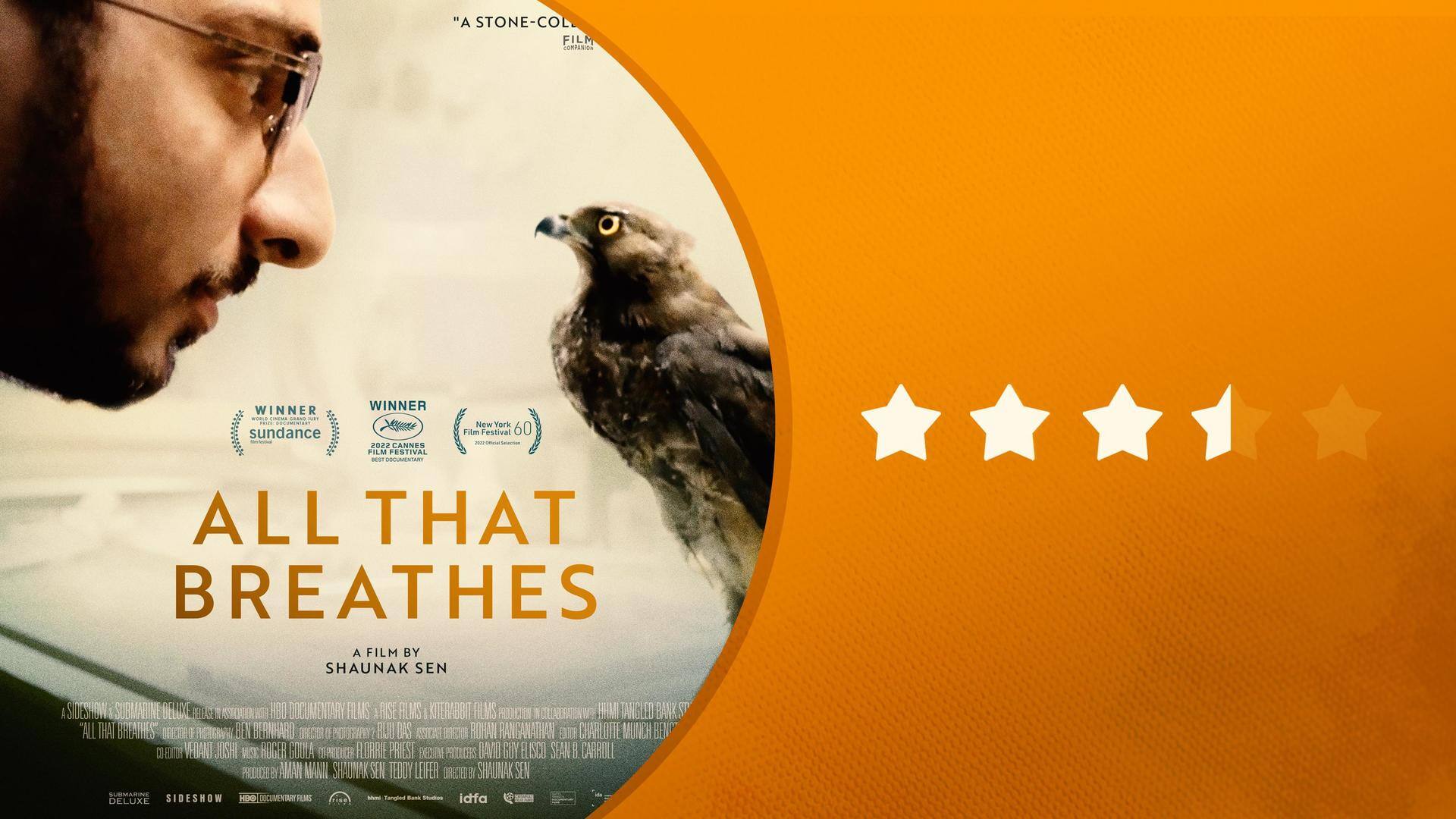
'All That Breathes' review: Poetic tale of perseverance, compassion, humanity
What's the story
Shaunak Sen's Oscar-nominated documentary All That Breathes has started streaming on Disney+ Hotstar.
Recipient of numerous global accolades, the documentary traces the selfless, perseverant, collective efforts of two brothers: Mohammad Saud and Nadeem Shehzad, and their cousin Salik Rehman, who rescue and treat black kites and other birds in Wazirabad, Delhi.
A story of grit, humility, and compassion, ATB is nuanced lyrical poetry.
Focal point
Learn more about the two brothers and their cousin
As the documentary gradually unfolds, we learn that Saud and Shehzad learned to care for these birds of prey at a tender age, and as they grew up, were slapped by the haunting reality that these birds have no home, no caregiver, no veterinary doctor to aid them.
Coming to their rescue, they have reportedly treated over 20,000 birds in the past two decades!
Positive 1
From the first scene, 'ATB' sets the stage well
The first aspect that looks you in the eye while watching ATB is not visual, it's a sound, a screeching, goosebump-inducing, uncomfortable one—of a family of rats scavenging through piles of garbage.
The high-pitched sound feels like it'll somehow make your ears bleed, but simultaneously, it serves as a proclamation that the drama will be an exploration of uncomfortable, seething, agonizing realities.
Positive 2
The documentary reminds us of the interconnectedness of the ecosystem
For almost the first five minutes, we see insects, flies, and rats and no humans.
This is a metaphor—the Earth belongs to everyone, and humans are a part of and not the master of this ecosystem.
In an early scene, the brothers discuss a probable nuclear war with Pakistan, and the first tension that cuts through them is the radiation that'll harm the birds.
Positive 3
Raw, real drama speaks directly to the viewers
ATB is a celebration of everything that resides in the sky, on the mainland, underwater- everywhere.
Moreover, its rootedness rescues it from becoming soporific.
At one point, two of the three men debate whether they should plunge into an ice-cold pond to rescue a gravely injured bird.
It's divorced from glossy, sheeny superficiality, making us care for the characters sooner than we had imagined.
Positive 4
Depiction of Delhi: The city plays a part here, too
ATB, on various levels, feels like a part of our daily lives, most importantly because Delhi is at its most raw here.
It's not the Lutyens' Delhi defined by lush green gardens, it's the more accessible, more real, underdeveloped one. So palpable that you can almost touch it.
One where dinginess and darkness sometimes, though not always, define both the atmosphere and people's lives.
Positive 5
The brothers' selflessness and humanity are simply inimitable
While wildlife conservation is the documentary's axis, selflessness and endurance are its beating heart, its very core.
Saving the birds is the brothers' sole mission but they aren't looking to be put on a pedestal for it.
It's a task they have taken upon themselves because they owe it to humanity and to their deceased mother who taught them, "everything that breathes is alive."
Positive 6
Who is the hunter, who is the prey?
ATB comments on multiple aspects at once.
For instance, Delhi's apocalyptic scenario and venomous air are mentioned, and how it continues to mutilate the lives of thousands of birds.
The same goes for the life-threatening maanjha used by kite-fliers.
Black kites are described as a bird of prey, but Delhi's pollution-smeared sky and humans' increasing apathy makes one re-think who the hunter really is.
Positive 7
'ATB' has a matter-of-fact, direct tone and isn't overly melodramatic
The matter-of-fact yet not detached tone is exactly what the documentary needs.
It's informative, but not pedantic. It's raw, but not unnecessarily melodramatic.
The brothers seemingly lost their mother to cancer (chemotherapy is mentioned), and resultantly, the value of life has become even more pronounced for them.
Toward the end, when they open a proper wildlife shelter, they aren't the only ones that smile.
Verdict
Catch the documentary today!
In one of the concluding scenes, the brothers talk about garnering higher education to further this noble cause.
Throughout its 1:30-hour runtime, there's no mention of putting their desires or profits first, it's always the birds first, their lives becoming an afterthought.
One of them even expresses the desire to be buried with his last saved bird's wings.
Till death does them part, literally.